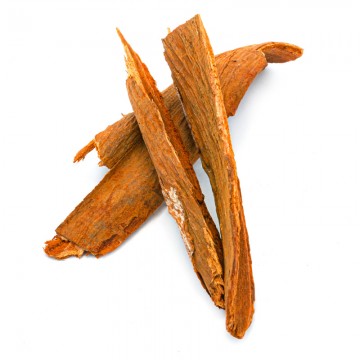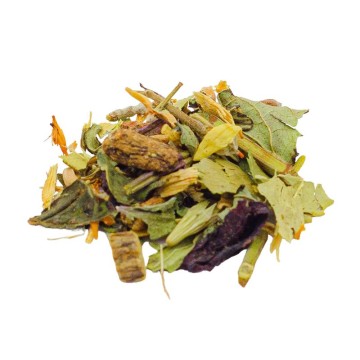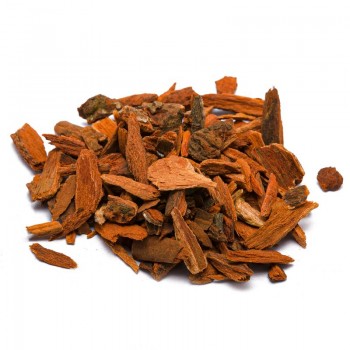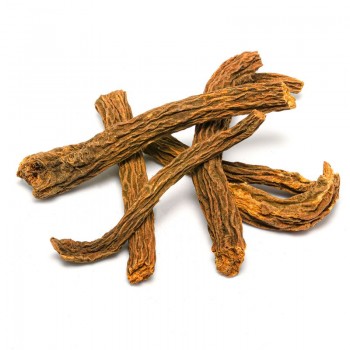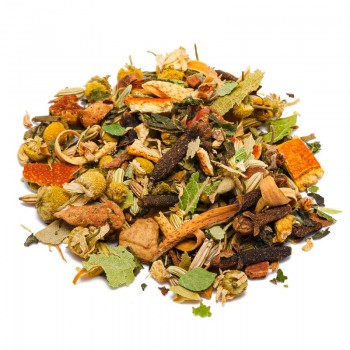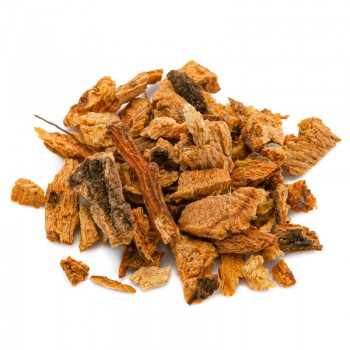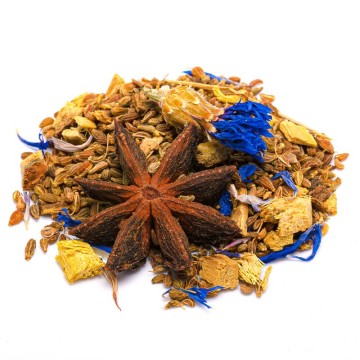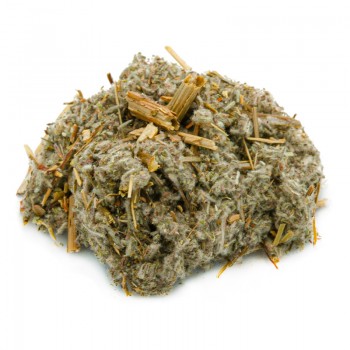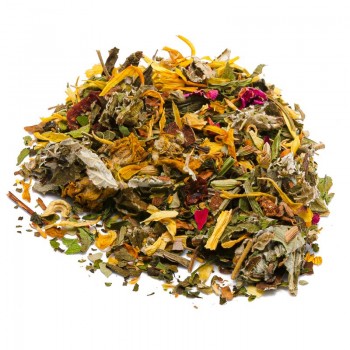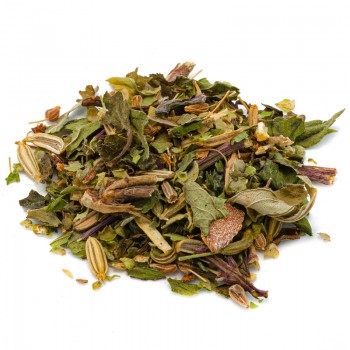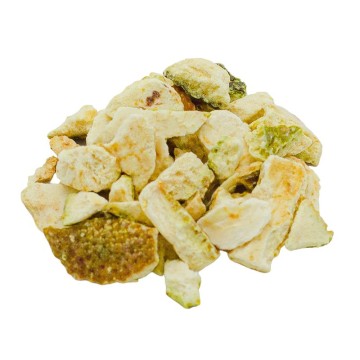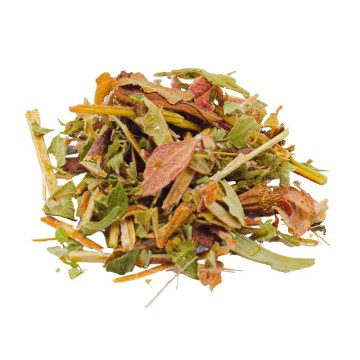The fennel and anise infusion is a perfect anti-swelling recipe. Born as a digestive herbal tea blend a, to eliminate the annoying sense of heaviness after meals. A swelling that often afflicts us even after hours, and that it is good to prevent.
Abdominal bloating can be caused by various factors such as poor diet, stress, food intolerances or specific diseases. In addition to the digestive factor, it can occur in women during the menstrual cycle. The swelling of the abdomen is caused by the non-expelled stagnation of liquids in the body, due to water retention, which are combined with the excessive accumulation of intestinal gas.
This drink helps reduce swelling thanks to the properties of its ingredients.
Fennel and anise infusion: properties and benefits
Fennel has the ability to prevent and relieve various symptoms related to indigestion. It can improve some problems due to gastrointestinal disorders such as irritable bowel syndrome , diarrhea, heartburn, flatulence.
It is also known as calming of stomach cramps - in fact, it is a useful herb to soothe muscle spasms. These characteristics occur thanks to its high concentration of substances such as anethole, estragole and other phytonutrients.
It can treat heartburn, thanks to the presence of phytoestrogens, which inhibit muscle spasms, improve digestion and can prevent acid reflux. Drinking a cup of this fennel tea when heartburn occurs can relieve pain and burning sensations. In addition, to make our digestion healthy, fennel and anise can have anti-inflammatory and carminative effects - that is, they can prevent the formation of intestinal gas, thus eliminating bloating and cramps.
Fennel is known as a medicinal plant known for its ability to speed up the digestive process, for those who have a slow assimilation of nutrients. Ensures maximum absorption of food and prevents constipation. For thousands of years, in fact, fennel has been used as a digestive aid, including by preventing injury to the digestive tract.
An infusion of fennel and anise can be found beneficial for those who show symptoms of irritable bowel syndrome, as this herbal tea helps treat flatulence by helping to release the gases trapped in the intestine. It is able to reduce intestinal fermentations and rebalance the bacterial flora.
It is also often used to avoid colic, and historically it was given to children to calm the digestive system. Anise also supports these properties against intestinal gas formation and indigestion.
In addition, the infusion of fennel and anise ensures the release of antioxidant substances , favorable to the protection of the immune system, and was traditionally known as an antiseptic and natural anti-inflammatory. The seeds of anise plants , in particular, are very rich in B-complex vitamins including vitamin B-6, linalool, quercetin and vitamin C.
The purifying and detoxifying effect of fennel can be a gift for those seeking to lose weight, while eliminating swelling and water retention that affect the line. It is, in fact, also a natural diuretic, which favors the expulsion of excess toxins from our body.
Among its properties, there is also that of helping the body to lower blood pressure, and the potassium contained inside is a vasodilator useful for relieving tension in the arteries and blood vessels. Among the other properties of fennel, there is the effect on the balancing of hormones; in the past it was considered an aphrodisiac to increase libido and stimulator for the production of breast milk in breastfeeding women.
This happens because of the antioxidant flavonoid compounds found in the plant, similar to female estrogens. In addition to protecting against painful symptoms of menstruation, they regulate hormones with a balancing effect (stimulate low estrogen, block excess estrogen).
Even the aniseed seeds of the infusion contain phytoestrogens able to reduce menstrual cramps, stimulate breast milk, support women in menopause (when the levelthe hormonal changes) or in the case of menstrual imbalances. Historically, fennel is also known as a food that can protect the respiratory system, having a slight decongestant action in case of phlegm and mucus. It works as an expectorant, and with soothing effects on sore throats.
Not only are fennel and anise seeds great for digesting a meal, but they can eliminate traces of them in the breath with a refreshing and cleansing effect. Meanwhile, it also protects the gums and teeth, thanks to its possible anti-inflammatory effects. In folk medicine, fennel is also a vermifuge, which helped eliminate internal parasites in the intestine.
The flavor of this infusion invites even beyond its beneficial effects, as both aniseed and fennel have a licorice-like flavor, less pungent but with a slightly sweet finish . The taste is amplified when they are mixed together, and are enhanced by traces of cumin.
Origins and History of cultivation
Fennel is a perennial herb (Foeniculum vulgare) native to the coasts of the Mediterranean, in fact, and grew spontaneously especially near the coast of the sea and on the banks of rivers. Today, due to its popularity and its ability to withstand even different climates, it can be found in different parts of the world.
In the past, it was widely used in traditional medicine and has recently become popular as a herbal remedy in the rest of the world as well. It was known in the Mediterranean area for its ability to alter the taste of wine and make it look better. On a herbalist level, however, it has been used since Roman times as a sacred herb for the treatment of certain ailments and to give vigor to the body.
It was considered beneficial for its purifying and diuretic properties, stimulation for the intestine and for proper digestion. If in ancient times it was known as wild fennel (fennel), its cultivation began in the Renaissance. Its name derives from the fact that the leaves resemble hay (foeniculum). Anise, on the other hand, grew in various areas of the eastern Mediterranean, western Asia, the Middle East, Mexico, Egypt and Spain.
It has been cultivated and used in the Middle East and the Mediterranean region by Egyptians, Romans and Greeks for thousands of years, both as a culinary ingredient and as an herbal element.
In medieval times it had already spread as far as Northern Europe, and was so widespread that import tolls were heavy - it seems that London Bridge repairs were financed by such taxes.
It was appreciated in traditional medicine as a carminative, aromatic, disinfectant and galactogen. It was one of the main ingredients in the creation of the drugs, known for its flavor similar to licorice, tarragon and fennel.
In the nineteenth century, anise drops began to be lengthened with ice water: a drink that had considerable success; as it happened for absinthe of which it is one of the main ingredients.
As a natural remedy , anise is most commonly taken via herbal tea, although the essential oil of these seeds is highly sought after. In the food industry, anise is used as a flavoring for seafood, ice cream, sweets and gum.
Plant and flowers
Fennel (Foeniculum vulgare) is a flowering plant of the Apiaceae family (Umbrelliferae).
We distinguish the variety of wild fennel from the sweet fennel of horticultural cultivation. All parts of the plant are fragrant, and the cultivated variety can grow up to 80 centimeters. It has yellow flowers, followed by green and then greyish fruits, improperly defined as seeds.
The Pimpinella anisum (anise) , is an annual aromatic plant, belonging to the Umbelliferae family.
It is one of the oldest medicinal plants, 30-50 cm tall, with small white flowers and small, green to yellow seeds. Shows a soft stem, and blooms in the summer. The fruits, or seeds as they are commonly called, ripen from August to September.
Cumin or Cuminum cyminum, is an annual herb native to the Mediterranean, but soon spread to many territories. It is grown to harvest cumin seed, commonly used as a spice - especially in Asian, Mexican, Indian and Middle Eastern cuisines.

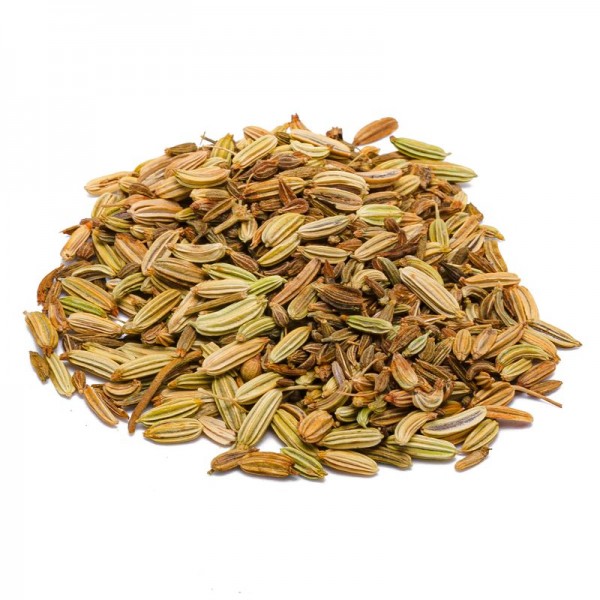









 No reward points for this product.
No reward points for this product.
